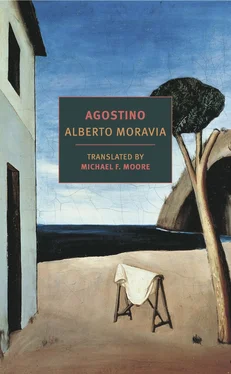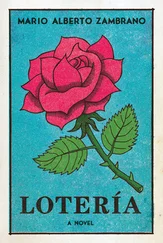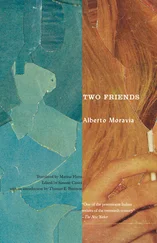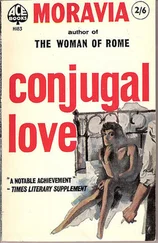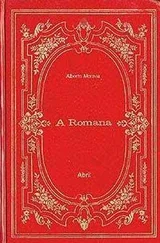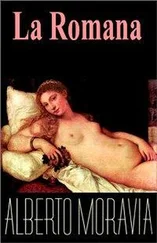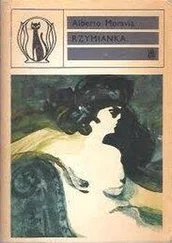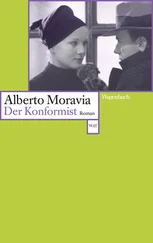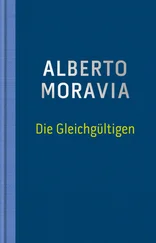The idea had come to him, clear and simple, although its sources were complicated and obscure. That very evening, he would go to the house and know one of those women. It was not a desire or a yearning but rather a firm and almost desperate resolution.
Only in this way, he felt, would he finally succeed in freeing himself from the obsessions that had so tormented him during these summer days. Knowing one of those women, he thought vaguely, would forever discredit the boys’ false accusations, and at the same time, sever once and for all the subtle bond of deviant and murky sensuality that had formed between the mother and himself. He couldn’t admit it, but to feel finally released from that bond seemed the most urgent goal to be achieved. And he persuaded himself of its urgency no later than that same day through a very simple but significant development.
He and the mother had been sleeping in separate rooms, but that night a woman whom she had invited to spend a few weeks with them was supposed to arrive. Since the house was small, it had been decided that the guest would take Agostino’s room while a cot would be set up for him in the mother’s room. That same morning, before his displeased, scornful eyes, his cot had been placed next to the mother’s bed, on which the sheets were heaped, still unmade and smelling of sleep. Along with the cot, his clothes, toiletries, and books had also been moved.
To see his already painful proximity to his mother increased by shared sleep filled Agostino with uncontrollable repulsion. All the things he had barely suspected till then, he thought, would suddenly be irremediably exposed to his eyes by virtue of this new and greater intimacy. As an antidote, he had to quickly, very quickly, insert between himself and his mother the image of another woman toward whom he could direct if not his gaze then at least his thoughts. This image — which would shield him from the mother’s nudity and, in a way, strip her of all femininity, giving her back the motherly significance she had once held — could only be provided by one of the women in that house.
So how would he manage to penetrate and gain admission to that house? How should he behave in choosing the woman and retiring with her? None of this mattered to Agostino. Even if it had, he couldn’t envision it. Because despite Tortima’s accounts, the house, its inhabitants, and the things that happened inside it were still enveloped in a dense, improbable air, as if they involved not so much concrete realities as a series of hazardous guesses that, at the last minute, might even prove to be wrong. The success of his endeavor was thus confided to a logical calculation: If there was a house, there were also women; and if there were women, there was also the possibility of getting close to one of them. But he wasn’t sure the house and the women really existed, and if they did, whether they resembled the image he had formed. It was not that he did not trust Tortima but rather that he had absolutely no terms of comparison. He had never done anything, never seen anything that had a thing in common, remotely or imperfectly, with what he was about to attempt. Like a poor savage who hears about the palaces of Europe and can only envision larger versions of his own hut, the only way he could imagine those women and their caresses was to think of his mother, so different and unimportant. The rest was daydreaming, fantasy, desire.
But as can happen, inexperience led him to dwell mainly on the practical aspects of the matter, as if, by settling them, he would also be able to solve the problem of how unrealistic the whole enterprise was. He was particularly worried by the question of money. Tortima had explained to him very carefully how much he would have to pay and to whom, but Agostino still could not wrap his mind around it. What was the relationship between money — which is generally needed to acquire clearly definable objects and verifiable quantities — and caresses, naked flesh, and the female body? How could a price be set on them, and how could such a price be calculated accurately and not vary each time? The idea of the money he would pay in exchange for that shameful, forbidden sweetness seemed strange and cruel, like an insult, which might be pleasurable to the person who delivers it but is painful to the one who receives it. Did he really have to pay the money directly to the woman or at least to someone in her presence? He felt it would be more appropriate for him to conceal the transaction from her, and leave her the illusion of a less interested relation. Finally, wasn’t the sum indicated by Tortima too small? No amount of money, he thought, could pay for an experience such as the one he expected to conclude one period of his life and inaugurate another.
In the face of these doubts, he decided in the end to stick closely to Tortima’s information. Even if untrue, it was nevertheless the only thing on which he could base a plan of action. He had persuaded a companion to tell him the price of a visit to the house, and the sum had seemed larger than the savings he had long been setting aside and keeping in a clay piggy bank. Between coins and small bills he must have scraped together the right amount and maybe even surpassed it. Maybe he could take the money from the piggy bank, wait until his mother had left to pick up her friend from the train station, go out himself, run to find Tortima, and then proceed to the house with him. Then the money would have to be enough for him and Tortima, whom he knew was poor as well as unwilling to do him any favors without receiving a personal benefit in return. This was the plan, and although he continued to see it as hopelessly remote and improbable, he decided to act on it with the same accuracy and certainty as a boat trip or a raid of the pine grove.
Excited, anxious, and for the first time free of the venom of guilt and impotence, he ran almost the whole way, crossing the town from the piazza to his house. When he arrived the door was locked, but the shutters of the living-room window on the ground floor were open. Through the window he could hear piano music. He went in. His mother was sitting in front of the keyboard. The two soft lamps on the piano illuminated her face, leaving most of the room in darkness. She was sitting upright on a stool, playing the piano. Next to her, on another stool, was the young boatman. It was the first time Agostino had seen him in their house, and a sudden premonition took his breath away. His mother seemed to have noticed Agostino’s presence, since she turned her head toward him with a calm and unconsciously flirtatious gesture. A flirtatiousness — to his mind, at least — directed more at the young man than at him, its supposed object. At the sight of him, she immediately stopped playing and asked him to draw nearer. “Agostino, is this any hour to return home? Come to me.”
He slowly approached her, filled with repulsion and awkwardness. The mother pulled him close, wrapping an arm around his body. In her eyes Agostino could see an extraordinary brightness, a sparkling youthful fire. Her mouth seemed to be restraining a nervous laughter that coated her teeth with saliva. And in the act of wrapping her arm around him and pulling him to her side, he felt an impetuous violence and a trembling joyousness that almost frightened him. They were effusions, he could not help but think, that had nothing to do with him. Strangely they made him think of his own excitement a little earlier when he was running through the streets of the city, thrilled at the idea of taking his savings, going to the house with Tortima, and possessing a woman.
“Where have you been?” the mother continued in a tender, cruel, but cheerful voice. “Where have you been all this time? You’re such a naughty boy.” Agostino said nothing, in part because he had the impression his mother was not awaiting an answer. The same way, he thought to himself, she sometimes spoke to the cat. The young man looked at him and smiled, leaning forward, his hands clasped between his knees, a cigarette between two fingers, and his eyes sparkling just like the mother’s. “Where have you been?” she repeated. “Naughty boy… you little rascal.” With her big, long, warm hand, she ruffled his hair with a caress of tender and irresistible violence, and then smoothed it back down on his forehead. “He’s such a handsome boy, isn’t he?” she added proudly, turning toward the young man.
Читать дальше
